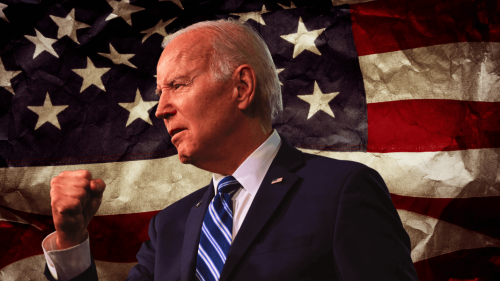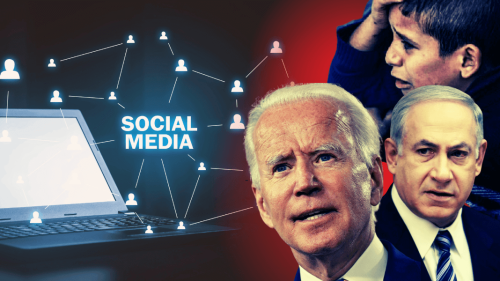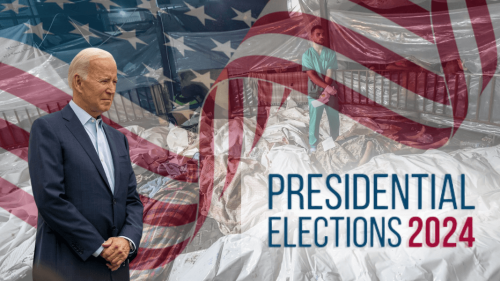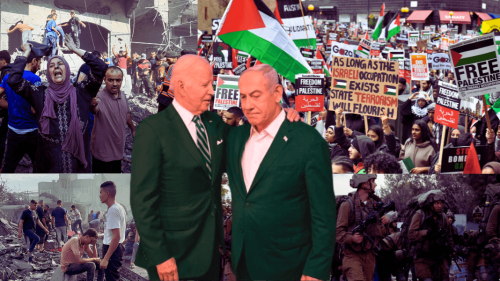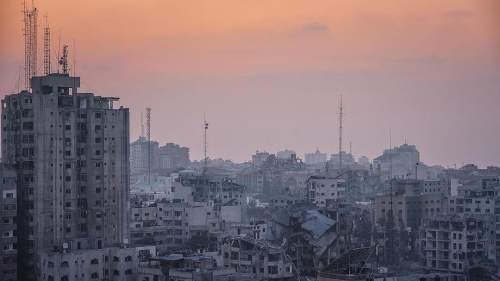Why I am Banned in the USA
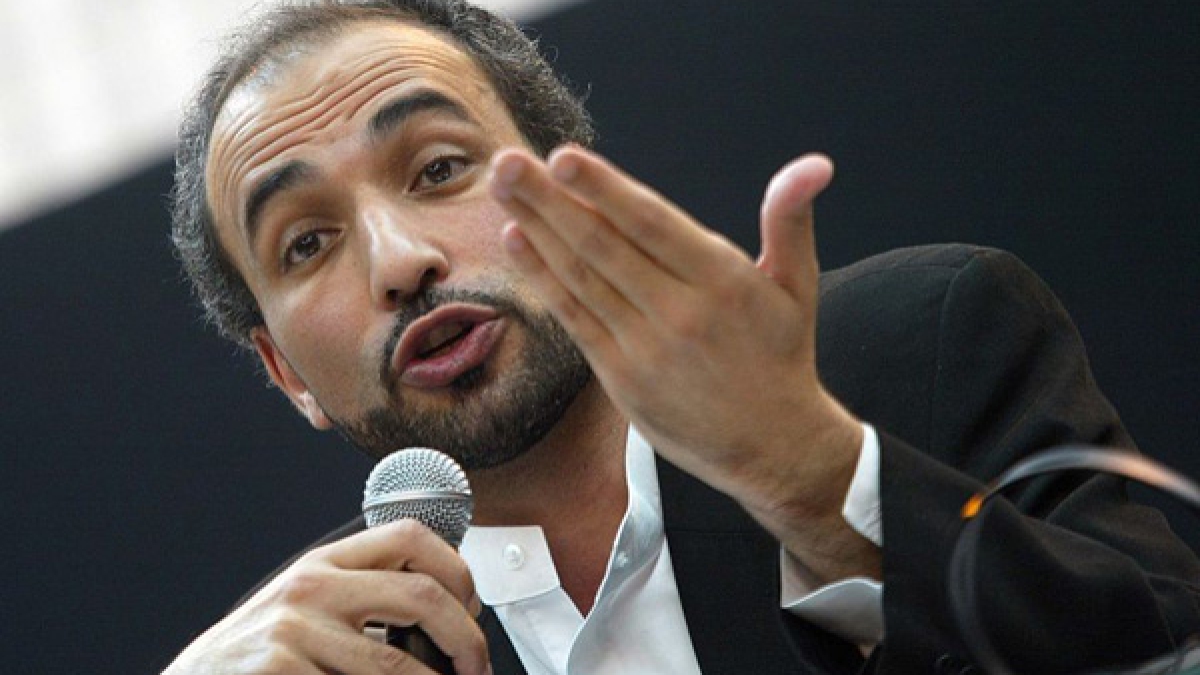
For more than two years now, the U.S. government has barred me from entering the United States to pursue an academic career. The reasons have changed over time, and have evolved from defamatory to absurd, but the effect has remained the same: I've been kept out.
First, I was told that I could not enter the country because I had endorsed terrorism and violated the USA Patriot Act. It took a lawsuit for the government eventually to abandon this baseless accusation. Later, I reapplied for a visa, twice, only to hear nothing for more than a year. Finally, just 10 days ago, after a federal judge forced the State Department to reconsider my application, U.S. authorities offered a new rationale for turning me away: Between 1998 and 2002, I had contributed small sums of money to a French charity supporting humanitarian work in the Palestinian territories.
I am increasingly convinced that the Bush administration has barred me for a much simpler reason: It doesn't care for my political views. In recent years, I have publicly criticized U.S. policy in the Middle East, the war in Iraq, the use of torture, secret CIA prisons and other government actions that undermine fundamental civil liberties. And for many years, through my research and writing and speeches, I have called upon Muslims to better understand the principles of their own faith, and have sought to show that one can be Muslim and Western at the same time.
My experience reveals how U.S. authorities seek to suppress dissenting voices and -- by excluding people such as me from their country -- manipulate political debate in America. Unfortunately, the U.S. government's paranoia has evolved far beyond a fear of particular individuals and taken on a much more insidious form: the fear of ideas.
In January 2004, I was offered a job at the University of Notre Dame, as a professor of Islamic studies and as Luce professor of religion, conflict and peace-building. I accepted the tenured position enthusiastically and looked forward to joining the academic community in the United States. After the government granted me a work visa, I rented a home in South Bend, Ind., enrolled my children in school there and shipped all of my household belongings. Then, in July, the government notified me that my visa had been revoked. It did not offer a specific explanation, but pointed to a provision of the Patriot Act that applies to people who have "endorsed or espoused" terrorist activity.
The revocation shocked me. I had consistently opposed terrorism in all of its forms, and still do. And, before 2004, I had visited the United States frequently to lecture, attend conferences and meet with other scholars. I had been an invited speaker at conferences or lectures sponsored by Harvard University, Stanford, Princeton and the William Jefferson Clinton Presidential Foundation. None of these institutions seemed to consider me a threat to national security.
The U.S. government invited me to apply for a new visa and, with Notre Dame's help, I did so in October 2004. But after three months passed without a response, I felt I had little choice but to give up my new position and resume my life in Europe. Even so, I never abandoned the effort to clear my name. At the urging of American academic and civic groups, I reapplied for a visa one last time in September 2005, hoping that the government would retract its accusation. Once again, I encountered only silence.
Finally, in January, the American Civil Liberties Union, the American Academy of Religion, the American Association of University Professors and PEN American Center filed a lawsuit on my behalf, challenging the government's actions. In court, the government's lawyers admitted that they could establish no connection between me and any terrorist group; the government had merely taken a "prudential" measure by revoking my visa. Even then, the government maintained that the process of reconsidering my visa could take years. The federal court -- which issued a ruling recognizing that I have been a vocal critic of terrorism -- rejected the indefinite delay. In June, it ordered the government to grant me a visa or explain why it would not do so.
On Sept. 21, the long-awaited explanation arrived. The letter from the U.S. Embassy informed me that my visa application had been denied, and it put an end to the rumors that had circulated since my original visa was revoked. After a lengthy investigation, the State Department cited no evidence of suspicious relationships, no meetings with terrorists, no encouraging or advocacy of terrorism. Instead, the department cited my donation of $940 to two humanitarian organizations (a French group and its Swiss chapter) serving the Palestinian people. I should note that the investigation did not reveal these contributions. As the department acknowledges, I had brought this information to their attention myself, two years earlier, when I had reapplied for a visa.
In its letter, the U.S. Embassy claims that I "reasonably should have known" that the charities in question provided money to Hamas. But my donations were made between December 1998 and July 2002, and the United States did not blacklist the charities until 2003. How should I reasonably have known of their activities before the U.S. government itself knew? I donated to these organizations for the same reason that countless Europeans -- and Americans, for that matter -- donate to Palestinian causes: not to help fund terrorism, but because I wanted to provide humanitarian aid to people who desperately need it. Yet after two years of investigation, this was the only explanation offered for the denial of my visa. I still find it hard to believe.
What words do I utter and what views do I hold that are dangerous to American ears, so dangerous, in fact, that I should not be allowed to express them on U.S. soil?
I have called upon Western societies to be more open toward Muslims and to regard them as a source of richness, not just of violence or conflict. I have called upon Muslims in the West to reconcile and embrace both their Islamic and Western identities. I have called for the creation of a "New We" based on common citizenship within which Buddhists, Jews, Christians, Muslims and people with no religion can build a pluralistic society. And yes, I believe we all have a right to dissent, to criticize governments and protest undemocratic decisions. It is certainly legitimate for European Muslims and American Muslims to criticize their governments if they find them unjust -- and I will continue to do so.
At the same time, I do not stop short of criticizing regimes from Muslim countries. Indeed, the United States is not the only country that rejects me; I am also barred from Tunisia, Saudi Arabia and even my native Egypt. Last month, after a few sentences in a speech by Pope Benedict XVI elicited protests and violence, I published an article noting how some governments in the Muslim world manipulate these imagined crises to suit their political agendas. "When the people are deprived of their basic rights and of their freedom of expression," I argued, "it costs nothing to allow them to vent their anger over Danish cartoons or the words of the Pontiff." I was immediately accused of appeasing the enemies of Islam, of being more Western than Muslim.
Today, I live and work in London. From my posts at Oxford University and the Lokahi Foundation, I try to promote cultural understanding and to prevent radicalization within Muslim communities here. Along with many British citizens, I have criticized the country's new security laws and its support for the war in Iraq. Yet I have never been asked to remain silent as a condition to live or work here. I can express myself freely.
I fear that the United States has grown fearful of ideas. I have learned firsthand that the Bush administration reacts to its critics not by engaging them, but by stigmatizing and excluding them. Will foreign scholars be permitted to enter the United States only if they promise to mute their criticisms of U.S. policy? It saddens me to think of the effect this will have on the free exchange of ideas, on political debate within America, and on our ability to bridge differences across cultures.
Tariq Ramadan, a fellow at Oxford University, is author of "Western Muslims and the Future of Islam." He can be reached at [email protected]
Topics: Government And Politics, United States Of America
Views: 6332
Related Suggestions
i dont know what the president also the goverment of usa going to do of other coutry like irac muslims.i wish the go in peace.and also pray to god for forgivenes.and i dont know what is your oppinium.plice e-mail me
And I am not going to defend stupidities of US Govt. As sombody has opined, US is becoming a Friendly Fascist state. Of course, Ramadhan was denied visa for 'ideological' reasons; but then US is within its soverign rights to deny entry into US for any reason (and without giving any explantion). I fail to understand, why Ramadhan got involved in a lawsuit against US for denying him visa. If I were Ramadhan, I will stay in Switzerland. By the way, nobody in US asks whether a person a muslim or not. From my beard and looks, I look like a muslim, but I have not found any problem in US; and I end up travelling to very small towns where people are most likely to be the most ignorant and 'discrimination' is likely to be the greatest.
So, relax. US is not a paradise; but it is not as bad as you think. Muslims have oil; so they get the tretment. If Hindus had oil, US will treat them the same way. It is control of critical resources which US needs for survival. If Canada did not ship oil to US, guess, what will US do to Canada (and it is essentially and Anglo and Christian country).
Sorry, Hudd, I came to USA directly on immigrant visa and was given my Green Card in about 4 days (that is right, 4 days, the time needed to prepare and mail the card) after arrival.
Ramadhan would have to apply for immigrant visa (Green Card) after his arrival on scholar's visa. These days, as you know the politics in USA, green cards are not that easy to get, even for top flight scientists.
I, H.A., am/is forced to support my Grandpa Moonlight (aka Romesh Chander), who explicitly sites (regarding Tariq Ramadan)
" ...Physical presence is an old concept. In these days of media, one can be anywhere and still be everywhere..."
As you can see Grandpa Moonlight is absolutely correct. In these days of light and color, You do not PHYSICALLY have to be on the MOON to get MOONLIGHT. You can be on Earth (as you all are aware) to get moonlight. So he is absolutely correct.
..
Sincerely,
H.A. (aka Kicking Bird)
Well, obviously, you, living in Canada is unaware of US laws. Ramadan was not coming to US as an immigrant (i.e. Green Card to be given to him on his arrival); he was coming on a temporary visa for scholars. And that temporary visa was 'withdrawn' before his arrival.
It is rather unfortunate that you are comparing a scholar like Ramadan to a mexican labourer jumping off the fence on the Mexican border; he deserves better respect than that.
When you post your comment and your view is in disagreement with the author then come out openly and disclose yourself that you disagree. Do not disguise yourself in neutral and then disagree.
Seems to me that you have not been keeping track of the story caefully. Before Tariq Ramadan's visa was 'withdrawn', he had made arrangements to buy a big house in Notre Dame's area and all of his furniture to be shipped from Switzerland. If he wanted to stay here only temporarily, then why would he buy a big house in US and get his furniture shipped from overseas?. He could have stored his furnitre there, rented a house here; when assignment (for 3 years) was over, he would have gone back to Switzerland; it would have been lot easier and cheaper. All he needed was to ship his books and clothing shipped to US and family flown here.
Obviously, he was planning to stay in US permanently and NOT temporarirly as assumed by everybody.
You write that Tariq Ramadan has been banned from US because he is a muslim. Well, if that was the case, then US will not allow any muslim to come to US, intellectual or a labourer; and on the top of that, US would have kicked muslims out of the country. Could anybody tell me how many thousands opf muslims have been kicked out of US or banned from coming into US? No that I know of any.
do you know that americans hate islam,
do u know the meaning of the word america.
A-america
M-missionaries
e-agianst
i-islam
c-country
so thats why?
do u know the meaning of the ward america.
The other fact which perhaps wisely so he does not mentions that Zionists do not want to hear and to stop promotion of Islam and most importantly he is nephew of Hassan El Bannaa of Aqwan e Muslameen.
All such persons are such persons.
Thank you,
Mohammad Ataullah.
Physical presence is an old concept. In these days of media, one can be anywhere and still be everywhere.
I would think your confusion could be cleared if you try to develop the ability to distinguish between government and the nation. I am an American. That does not mean I must agree with every single thing and every single policy our government makes. Undoubtedly, this is the best country on the face of this earth at this time. Being the best country does not mean it is the ideal country. There are still some flaws and areas in which we could improve. Since this is the best country, here is our only hope to make it even better and as citizens it is our responsibility to point out wherever we see we make a mistake. Criticizing the government does not mean criticizing the nation. Yes it is true that any government has the discretion to reject visa to any applicant but in a "democratic" country it is the governments responsibility to justify its decisions to the public. Mr. Ramadan has proven that he could be an asset to the nation and the country. The administration has not proven otherwise, instead given lame excuses which only tend to prove that they fear he is a threat to their policies. You have now to decide which side you are on, the nation and the country's side or the administration and the government's side because they are not the same.
Jeff Russell
They have different agendas to divide and keep hatred among "THE PEOPLE OF HOLY BOOK" i.e,Jews, Christians,and muslims for their actions and advantages.
Find out yourself reading Quran and Hadith which is translated in other languages too.Post quotes or references that shows any violence or any hatred for other religions. Some scholars can explain or arrange an open house, dialogue, debates,get together parties at your local Islamic Center and clear your doubts.
Islam is a religion of mercy, peace and religion for all mankind, but through politicians,media extremists in all religions they want to spread all wrong info. so that they have some excuse for their actions, wars, and gain control of their political parties in power.
Muslims, Christians and Jews come from same ADAM or ABRAHAM and they worshipped the same GOD-ALLAH, Who also sent Moses ,Jesus and Muhammad as messengers to spread the word of GOD-ALLAH.
Assalaam Alaikum wa Rahmatulahi wa Barakatuhi
I am a regular at islamicity.com I like to read the articles, and I often print them out and share them at work. I work at a private Islamic school in North Carolina. After reading your article however, I am somewhat confussed. I understand that American often makes decisions that are irrational and/or ignorant and I agree with you that the reasons you stated in your article are not valid reasons for refusing you a visa. I also have some questions. If you disagree with American politics so much why is it so important for you to becaome a resident? You have obviously tried very hard to gain access to a country that you obviously wouldn't be happy in. Are you very unhappy where you live now that America for all its worse is better? I am not trying to put you down, I just don't understand. My parents came here before I was born. They left a war torn Palestine to have a family in a safer environment. Even if they do not agree with many things in America they do not publically criticise them either. That's all really. Nothing to much. But if you could please help me understand better I would appreciate it. Thank you.










